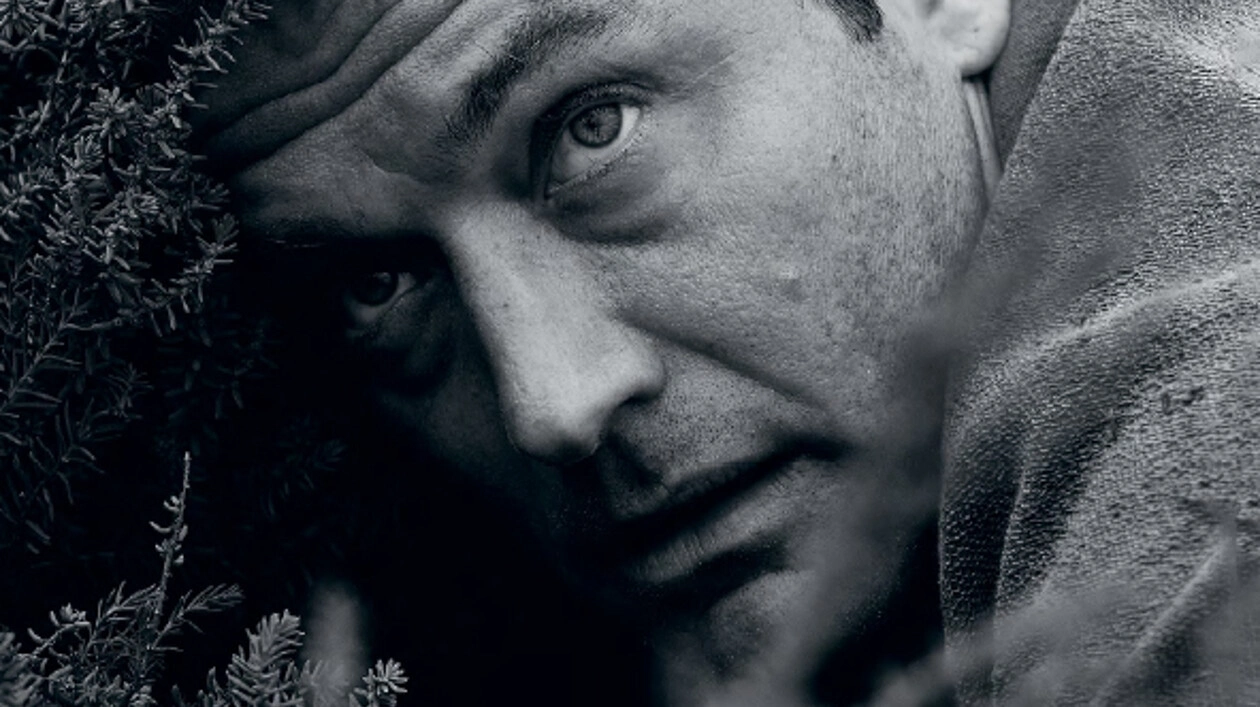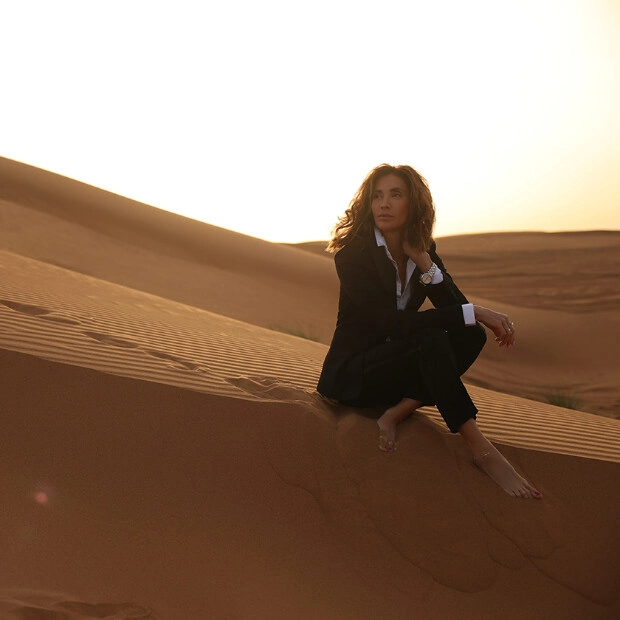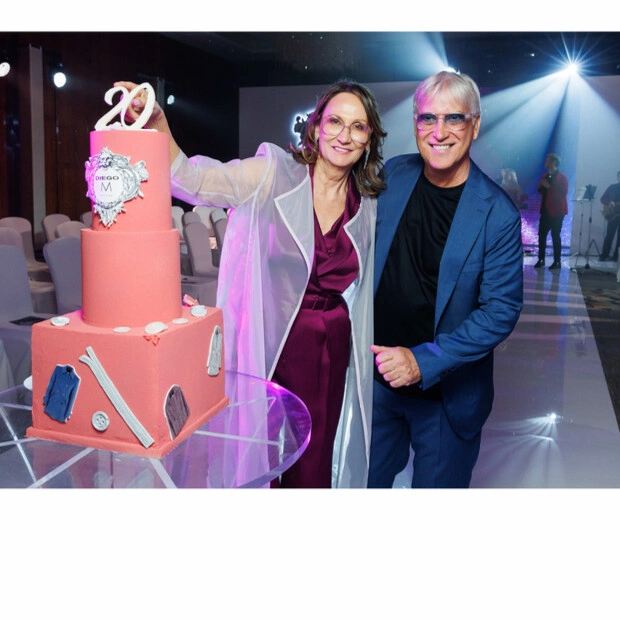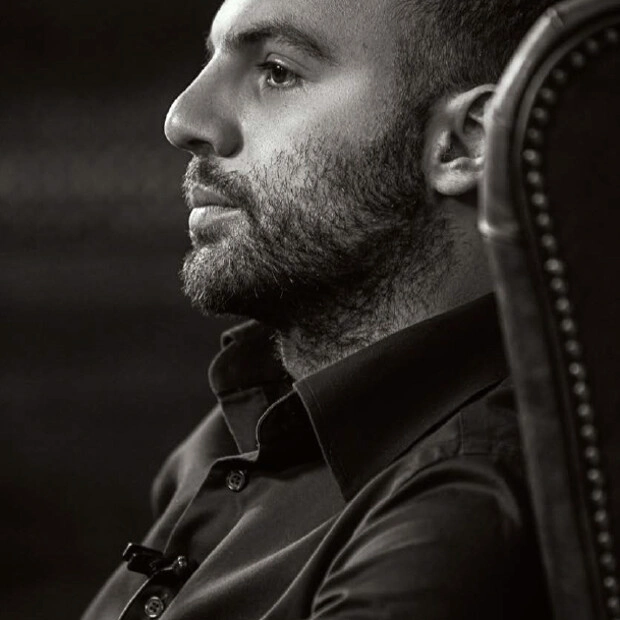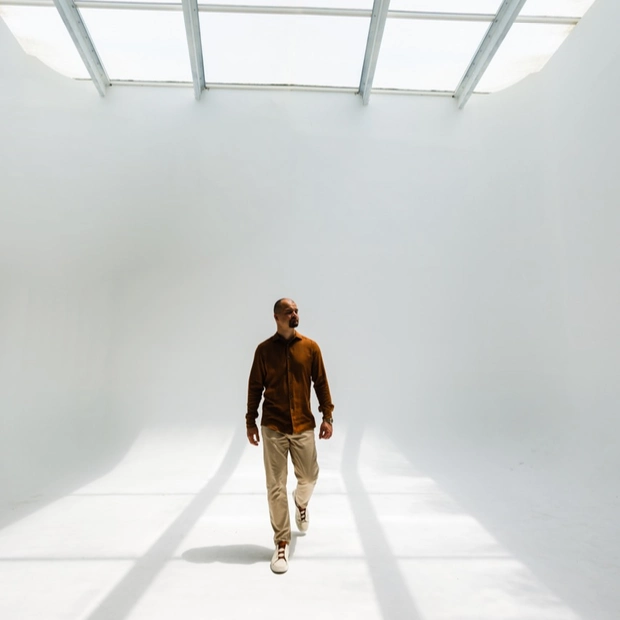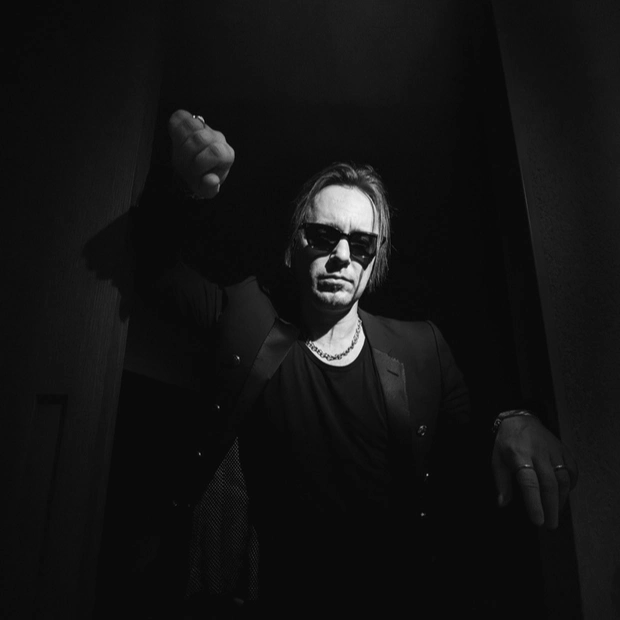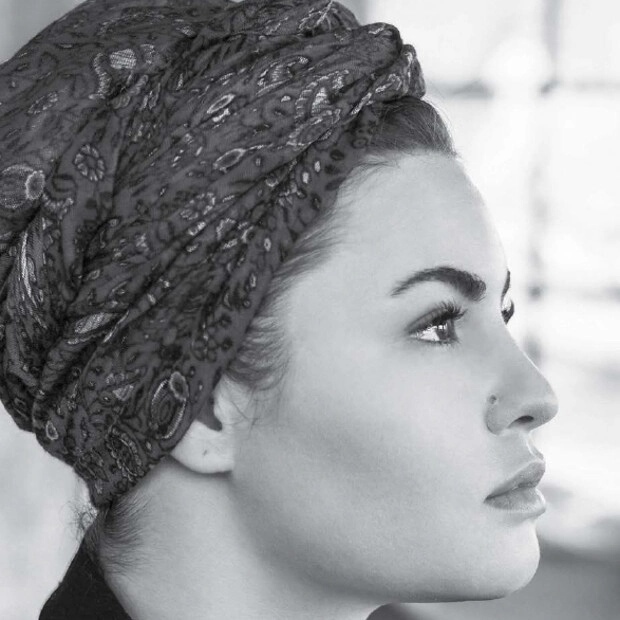interview — Nelle Holmes
September 11, 2020
Via Zoom
Just like everybody else, Jude Law and his family members have been living through this period of reassessing everything, once habitual and everyday, that has turned into an unknown and dangerous adventure on the edge of life and death - just like in Fantastic Beasts, whose third part was on pause due to the pandemic and is in the making again. Speaking about what’s been done, his children, parents, films completed, and those only planned, Jude seems to be saying, ‘It’s great we have learnt to appreciate life and cherish the moments spent with our near and dear ones! This is “the silver lining” of the pandemic “cloud”.’
Nelle Holmes. May I ask where you are now?
Jude Law. I’m in London.
N.H. At your London home?
J.L. At my home, yeah.
N.H. I’ve seen both THE THIRD DAY and THE NEST. I really enjoyed both of them, though, for different reasons. I think I like the Jude Law of THE NEW POPE, who tries to look clean and good, than the one in THE THIRD DAY, who goes from OK to bad and worse. When did you understand more that you had to let go of your looks and get into this crazy character’s skin that I really enjoyed watching?
J.L. You know, it’s funny, I got involved with The Third Day very quickly, and it’d taken many years to develop. So, when it came back with this wonderful group of creatives around it, from the cast and producers to the director and the writer, it was very hard to resist. Still, to be honest, I, sort of, underestimated the emotional and physical impact of playing that part. It was grueling, but once you’re in, you’re in. Once you said yes, there’s no going back. And, I think the toughest section was the one in the water. We were in that water for days and days, and it had an incredibly strong current. So, occasionally members of the crew would get washed away slowly in front of me. All of them were saved, of course, and everyone was safe, but it was, nonetheless, quite hair-raising.
N.H. I saw THE NEST at Sundance, and it’s just stuck with me because it’s such a fascinating examination of masculinity. The roles we have to play, a certain perch and the kind of status you have to show the world mean something about yourself. Could you talk a little bit about that? Have you ever felt that not necessarily do you have to maintain a certain status for your friends or peers to see, but you observe people expect just that from you?
J.L. Yeah. I’m glad you picked up on that. It’s one of many themes and layers that drew me to the piece, and that we discussed when making it. It’s also interesting that my character chose to set it when he did. To me, it was a time when, I think, slightly more misogynistic roles were played in households. So, Rory’s living very much up to that. Also, you obviously learn about his past, and he’s also trying to steer his own family and himself away from what he sees as a failed family behind him. The theme of stepping up or living up to one’s role as a man, I think, is as yet unresolved, in a way, for all of us, men. It’s a modern dilemma, isn’t it? It’s how we embrace vulnerability and a search of affection, and who we are in our hearts as we tick the boxes of being a provider, an achiever, or all those qualities that are apparently essential to be a successful dad or a successful man.
N.H. That’s why we have to buy bigger houses or bigger cars, not necessarily for ourselves but to show …
J.L. To show everyone we’re doing so well. It’s an issue that, kind of, affects us all now, doesn’t it? It puts such pressure on us. We put pressure on ourselves, but, equally, the system around us puts pressure on us. It’s all about projecting out rather than looking within. That’s why to me, it was such a poignant piece. It looked at that terrain and picked at it, but with empathy and without judgment. I like to think, as you get to know him, you like him, you believe in him as an audience member, and then he lets you down as he lets down his wife and children. So, to make it more personal, like you asked, I suppose, the truth is, like everyone else, I try and wrestle with those demands. I try to work on my own sense of asking myself who and what I really want to be, rather than what the world’s thinking about me or what other people, my neighbors, or anyone else make of me. I think the real clue is the journey’s got to somehow start in your heart, and you’ve got to learn to talk to yourself about it.
N.H. What does a project have to give or offer you to sign on at this point in your career? Is it a different genre every time, or something you’ve never done before? What is it?
J.L. People, first of all. It’s always looking at the people around the project. What have they done before? Is it going to be an experience for us to grow together? With interesting, collaborative, and talented people you usually manage to make something interesting. It’s trying to work out the equation of creating something successful. No one has that magic touch, so you can never know but hope to make something original and go on an exciting journey. So, I think it starts with the people. I’ve never been the only one to look at it particularly so. I dislike repeating myself, though I’m sure I have. Yes, I am often curious to try things I’ve never done. I think it’s good to be a little scared of or nervous about something. This fear creates rather a good place to start work from. I’m not someone who necessarily has a list of genres or styles of films to try and work through. I’m quite happy drifting funnily, as I view it, just waiting for something to come along and grab my attention.
N.H. THE THIRD DAY made me think of Kafka. I don’t know if you’ve read THE CASTLE where he goes there and can never leave for whatever reasons.
J.L. Yeah.
N.H. I love the absurdity of it and all the unexpected things in it. I’ve been wondering about your attitude to all that. Are you into this Kafkaesque kind of stories? Of course, in this one, there’s much more involved, like grief and all these things. Still, is it something that attracts you and why?
J.L. I mean, I do know The Castle and have a passion for dystopian literature. It actually goes back to one of my first films - Gattaca. While researching that kind of storytelling, I fell in love with Yevgeny Zamyatin’s We, which, I believe, is being republished in a new translation this year. Yeah, Kafka and people like him. So, I suppose, in many ways, yes, I have a taste for all that. Again, as I said just now in another answer, I don’t really have a sort of plan ever. I wait until things come along and pique my curiosity. This one started through a friendship with Felix Barrett, the creative director of Punchdrunk and one of the producers. We’ve known each other for many years. He came to me with this idea, such an essential and, you know, in many ways a simple idea, of a man who arrives, can’t leave, and realizes that it’s a kind of metaphor describing his mental state. As it fleshed out in the hands of Dennis Kelly, a brilliant writer, it became clear it was going to be really interesting, timely, and fertile. I liked the idea of a story within a story - a man trapped physically and mentally on the island of his grief and sense of isolation. There’s another important ingredient of this literature/storytelling I may not have mentioned. There’s a humor to it. We is rife with metaphor and reference to our own states, actually. If you’re like me, I think you quite often find humans ridiculously funny because of the things we do. I mean, sometimes, it’s obviously upsetting, but still absurd in many ways. Yes, there’s an absurdity to it. I think Dennis gets that brilliantly. There are many funny things in The Third Day, which, I hope, you all have found.
N.H. What, do you think, a nest should be? In which way have you changed as a father and a husband to create this kind of nest?
J.L. I don’t know if the experience has necessarily changed my opinion of what a nest is or can be. I like the title because it has a sort of clarity and yet it’s ambiguous. I also think we all have our own interpretations of home as a nest and what that means. It always makes me laugh when you discuss rituals or activities with other people and find out that something you do or the way you do it in your home may be completely different from what someone else does, but it’s absolutely normal, nonetheless. You may be doing it because your parents did it, or because it’s something that comforts you. We all interpret life within our nests very, very differently, and I think the title has that sort of breadth. You know, I am someone who tries, I see life as an opportunity to grow permanently. I like to think that every day is an opportunity to improve yourself whether as a father, a husband, a friend, within your career, or just as a civilian, a citizen of Earth. So, I’d certainly say The Nest reminded me of the importance and the essence, I suppose, of love at the heart of a family. An interesting observation about the film is that the couples stay together, and there’s a sense, I think, of optimism at the end. They’re going to get through everything and survive. I think there’s a very important sense of that for us to keep. We can work through things, listen, understand, and move on.
N.H. Congratulations on your sixth child!
J.L. Thank you.
N.H. Did you imagine yourself a father of six children when you were younger?
J.L. No, I didn’t, but I love them all dearly. They definitely keep me a bit younger. We were all together just yesterday actually. My son Rudy turned 18, so we had a family dinner. We probably won’t be able to get all together for a while because new rules are being implemented here in London - no groups over six. Seeing an incredibly broad range of ages come together was just wonderful, really wonderful. Seeing my parents amidst all of us was particularly enjoyable for me, because they didn’t come from big families, so that’s been left to me and my sister.
N.H. The Premier season is starting and I’d like to know what’s your favourite team.
J.L. My team is Tottenham Hotspurs.
N.H. Harry Kane.
J.L. That’s right, Harry Kane. But we’ve got the worst luck of all teams.
N.H. How is the live episode of the show going to be shot on October 3? How are you preparing for it? What is it going to be like? As I’m a bit of an Italian, I find it interesting that Paolo Sorrentino says he’d do another POPE just to work with you and the team. I wonder if you feel the same about it.
J.L. Oh, I feel absolutely the same. I feel like I’ve been given an honorable membership of that Italian family. And as a country, I just adore Italy. I love visiting it, I love working there, but that particular group is a very close team. We had so much fun making the film. So, yeah, I do hope we will do something again, whether it’s me being Lenny or whoever else. He’s so incredibly creative and productive, always doing something, writing something, thinking of something. So, something will come up, I hope. The live event was key to the very first idea that we discussed for The Third Day. As I mentioned before, Felix Barrett, one of the producers and the creative director of Punchdrunk, which, if you don’t know, is an incredibly immersive theatre company. They have productions all around the world, and even if they didn’t invent it, they certainly made it a very commercial and successful theater form. His idea was to blend mediums. He said, ‘Wouldn’t it be amazing if we could watch a film or a television program that became a live event?’ He describes it as ‘the screen, sort of, dropping away for the viewer to step in.’ The inner story’s broken into three chapters, all of which take place on the island of Osea: Summer, Autumn, which I am in, and the last one is Winter. So, as you know, if you’ve seen it, there’s a festival put together by the islanders underway, and it has slightly dark overtones. The live event is going to be the festival. The audience obviously can’t come to the actual island, so we’ve created a theatrical piece with about 200 of us, I believe, on the island with just one camera following the festival activities for 12 hours. The Punchdrunk’s been rehearsing all that. My preparation is playing my part for five months. I know the character inside and out and, having worked with Felix alongside, I know what he’s been rehearsing with the company. They’ll drop me in, and we’ll see what’ll happen.
N.H. Life’s gone crazy over the last six months, so could you update us on how you’re coping with it? What are you doing with your time? How are staying sane? How are your parents doing at this time scary for all parents?
J.L. Yeah, thank you for asking. My parents are all right actually. They’re a little uneasy, as everyone of a certain age, but fine, thanks again. I’ve probably, like everyone else, been doing a lot of cleaning up and a lot of jobs I’ve been putting off for years and years and years. I’m fixing things, like getting rid of the squeaky doors and things like that. I’ve been very fortunate to be in London all this time, and spending a lot of time with my family is just fantastic. I’ve really enjoyed being able to spend some time in my garden watching it bloom. I mean, how lucky are we to have a garden and be able to see it. I love having a garden. Otherwise, yeah, I was on pause because we were meant to start Fantastic Beasts 3 just as the lockdown started. I was all ready to go, rehearsed, prepped, and then we were put on pause. We started just last week, but that’s been, sort of, rattling away in my head for the whole time.
N.H. What do you grow in your garden?
J.L. Gosh. All sorts. I'm particularly fond of Acacias, and I've been madly in love with my Wisteria, which I trim daily, trying to train it up the whole other side of the house. Yeah, I've got a couple of Bonsai trees too.
N.H. Just for clarification, are your parents in London or in France?
J.L. They've been in London for the lockdown.
N.H. What are your conclusions, if any, about dealing with the media during the last six months? You are used to being on distant camera and don’t have to fly to every press event but can do interviews via Zoom from your room instead. Is it something you’d like to continue doing when we go back to normal? Your film is going to the Zurich Film Festival. Do you think it’s more difficult for your films to win at festivals if you cannot be there in person? Could you say a few words about any other aspects of working distantly besides acting?
J.L. Yeah. Well, first of all, I think I should say, like everyone else, I'm actually just getting used to it, trying to understand what it’s all about. I like human interaction and prefer being in the same room with someone I’m talking to because this kind of dynamics is more in tune with how I feel connected with other people. Anyhow, if distant communication’s safer and better for the environment with a lot less flying, then I'm all for it. I think it's a case of weighing it all up, isn't it? How much are we going to miss out by conducting things like this for ever more? Or is it indeed worth the journey? That's how it feels, and I don't know. I really don't. I mean, at the moment, this is what it is, and we all make it work. Who knows about the future? We'll have to see. Going back to one of your other points, which is perhaps better to talk about - film festivals, I know Venice is underway at the moment. I haven't spoken to anyone who's been there, but I hear it's going well, and they've had no problems. It'll be interesting to see their model, and how they've managed to pull that off, because, of course, film festivals are wonderful venues for smaller films, new film-makers, and film fans who love seeing movies in the cinema. Festivals help us understand how we can work from now on, and, as you said, for that, we want to be there as actors and film-makers to support and encourage people to see our products.
N.H. You mentioned FANTASTIC BEASTS a while ago. Could you tease us a little about what we can expect from this new film?
J.L. They’ve made a slight adjustment because of travel. We were unable to get a location we wanted, so they’ve switched to another country. That wasn’t Berlin, by the way, but another one. That’s all. I can’t really talk about it because it’s still a secret as to where we end up.
N.H. THE NEST and THE THIRD DAY start with your characters talking on the phone. Somehow or other, you managed to express a wide range of emotions from joy to shock within a short time. How do you rehearse such things? What can prepare or make you act so effortlessly in such scenes?
J.L. Well, what I tend to do is have the whole dialogue so that it's not one-sided. Both before and on the day, I rehearse with someone else to make it a two-way conversation, because otherwise…. I don’t know who once said that 70% of acting is listening, which I agree with. On the phone, you obviously just listen because all you've got is the voice of the other person. In that particular scene, Marc Munden, the director of The Third Day, wanted me to push the extremity of the responses and emotions. And, as the question rightly points out, respin very, very quickly with where his mind is getting a sort of first look into Sam’s slightly erratic emotional state. I remember Marc saying, ‘Faster! Faster! Faster! Let's push it even further!’ while we were rehearsing. He was very good at that throughout, and, luckily, we shot that on the first day, so I still had lots of energy.
N.H. You’ve talked about your six children. I wonder, in which of them you see most of yourself. You’ve also mentioned your parents. I'm not sure if I got you correctly, but I think you said your parents hadn’t been happy in childhood. Could you elaborate on that please? First, about your child. Which one of the six is most like Jude Law and why?
J.L. Well, they're all themselves. I don't know yet. My eldest son looks like me, and he certainly has similar qualities, but he's very much his own person, as they all are. It's the joy of being a parent: you see a little bit of yourself, a little bit of the mother, but you also see this person growing and evolving in front of you, right? My parents became orphans and were both adopted. So, they come from small families, though they were very happy then. Fortunately, their new parents were in both cases incredibly lovely and looked after them well, but both pairs were quite elderly and died when my parents were young. Still, it meant that my mum and dad were very much a family when they met, until my sister and I’ve done a great job of expanding the Law tribe.
N.H. So, did they move back to London for the lockdown?
J.L. They’d actually been here when the lockdown was called. So, my sister and I begged them to stay. I'm glad they did. I think we all felt we wanted our loved ones close by, right?
N.H. Certainly. I asked that because, when you spoke about your parents and your six children all together at the birthday dinner, I’m sure you were not only a proud father, but a proud son too, to have everybody around you, right?
J.L. It was beautiful. The lockdown has taught us to cherish these moments as important and special.
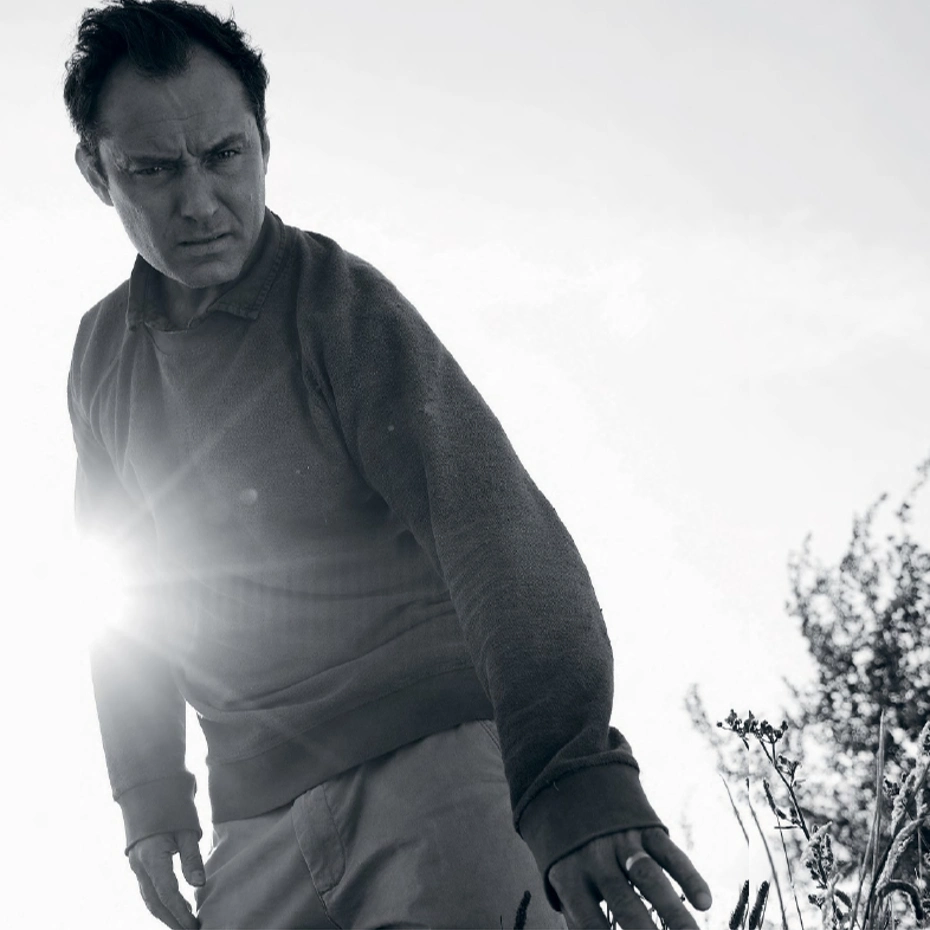
Текст
